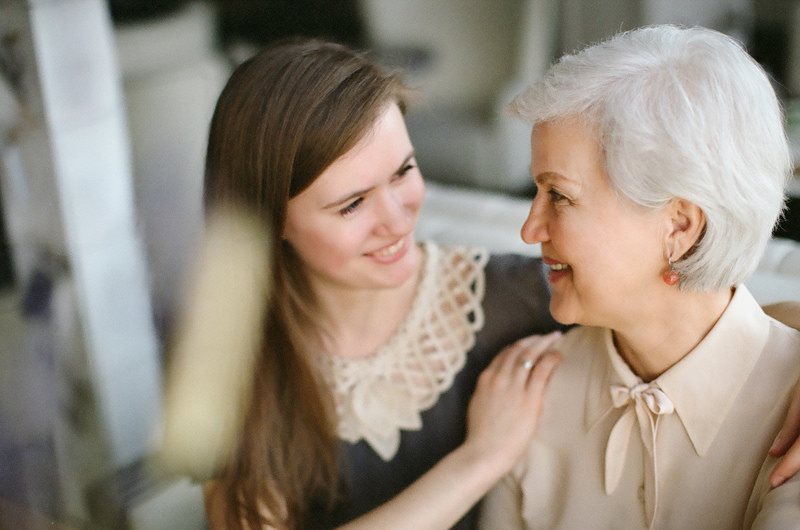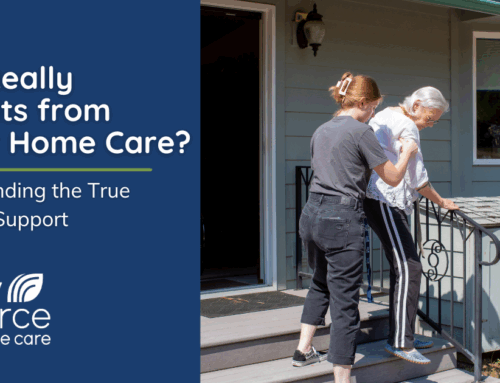Aging is personal ― but it affects everyone in the family. When older adults become unable to care for themselves, whether by illness, accident, aging, or a combination of factors, the lives of family members change in significant ways. Adult children who may not speak regularly now must communicate often. Spouses, who may be aging themselves, discover themselves in unfamiliar territory and must find ways to handle the practical burden of learning about and managing care, the heartache of seeing a loved one decline, and the exhaustion and physical toll that caregiving can take on body and soul.
My own family is blessed with three aunts who are still healthy and active well into their 80s and 90s. We have also seen the pain that aging and disease cause. My stepmother has never really recovered from the long illness that took my father at age 91 from Dementia with Lewy Body. My wife’s parents end-of-life health issues and deaths brought their five children closer together, but also aggravated old wounds. Our cousin is now struggling to care for her ailing mother. My own adult children still miss their grandma who died when they were small, and so do I.
The point is not the needs of those who are ill, aging, or in pain and who we work tirelessly to support and care for. The point is that the families of those who are ill, aging, or in pain benefit from our support too.
A wonderful book I just read makes the point that in addition to being impacted when older relatives pass on, small children are also very aware when the older adults in their lives begin having trouble caring for themselves. “Why Can’t Grandma Remember My Name?” by Kent Karosen and Chana Stiefel tells the story of small children coping with their grandma with Alzheimer’s disease. The book shows what a difference it makes when we listen to children, talk to them on their level about the changes Alzheimer’s brings to a person, and reassure them that even if grandma is changed, grandma still loves them.
There’s a reason that 21 years ago we named ourselves “Family Resource.” Caring for people in need is not just about the person whose name is on the Plan of Care. It’s not just about disease processes, medication management, activities of daily living (ADLs), and instrumental activities of daily living (IADLs). It’s also about the families and loved ones of those for whom we care, and how by involving them and acknowledging the difficulties they face, the more lives we touch for the better.






